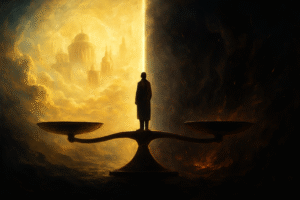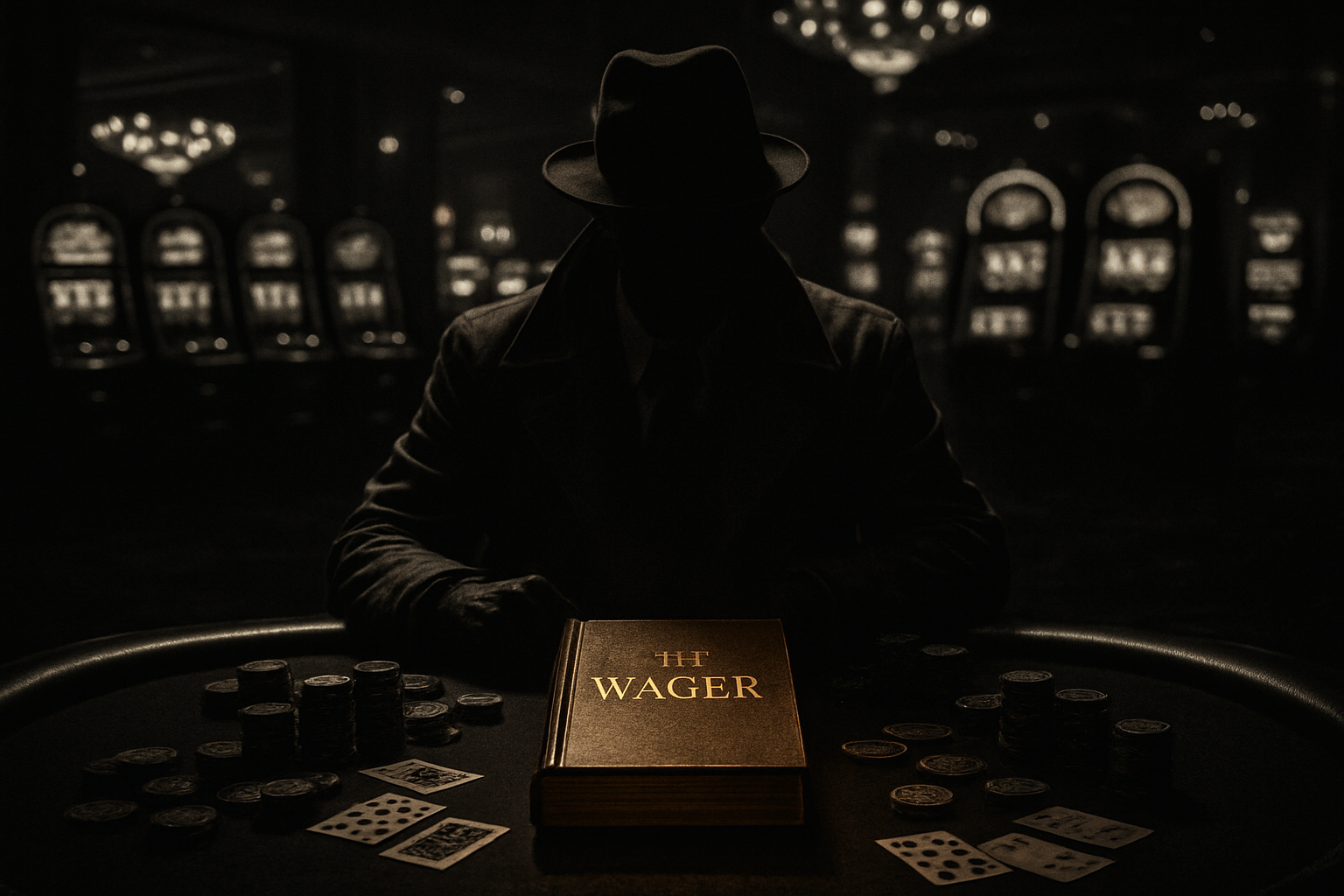The intersection of philosophical reasoning and gambling strategy creates a fascinating discourse that bridges centuries of human thought with contemporary risk-taking behavior. When we examine Pascal’s Wager through the lens of casino gambling, we discover profound insights into decision-making under uncertainty, the psychology of belief, and the mathematical frameworks that govern both faith and fortune. This principle of weighing potential outcomes against their probabilities is a core part of the strategic play at modern platforms like le bandit slot demo.
Understanding Pascal’s Wager: The Foundation of Rational Belief

Blaise Pascal, the renowned 17th-century mathematician and philosopher, proposed one of the most compelling arguments for rational religious belief ever conceived. His wager presents a pragmatic approach to faith: if God exists and you believe, you gain eternal salvation; if God exists and you don’t believe, you face eternal damnation; if God doesn’t exist, your belief costs you little during your finite lifetime. The expected value calculation suggests that belief represents the most rational choice when confronted with infinite stakes.
This framework of decision theory under uncertainty translates remarkably well to the casino environment, where players constantly make choices with incomplete information, weighing potential gains against probable losses. The casino floor becomes a laboratory for exploring how individuals navigate risk, probability, and the seductive allure of favorable outcomes.
The Mathematics of Belief and Betting: Expected Value Analysis
At the heart of both Pascal’s Wager and casino gambling lies the concept of expected value—the average outcome one can anticipate over numerous iterations of a decision. In Pascal’s original formulation, the expected value of belief approaches infinity when we factor in the possibility of eternal reward. Similarly, casino games operate on precise mathematical principles where the house maintains a statistical edge through carefully calibrated probability distributions.
We must recognize that professional gamblers and casual players alike engage in their own versions of Pascal’s reasoning. Before placing a wager, the astute player considers not merely the immediate odds but the cumulative impact of repeated decisions. A single bet with a negative expected value may seem inconsequential, but thousands of such wagers guarantee financial ruin. This mirrors Pascal’s argument that even a small probability of infinite consequence demands serious consideration.
The house edge in casino games—typically ranging from less than one percent in games like blackjack with optimal play to over five percent in roulette—represents the mathematical certainty that the casino will profit over time. Yet players continue to wager, often believing their particular session, system, or intuition will overcome these fundamental probabilities. This persistence of belief despite contrary evidence creates a direct parallel to religious faith in the face of uncertainty.
Risk Assessment and the Psychology of Wagering
The psychological dimensions of casino gambling reveal how humans process risk in ways that often contradict purely rational analysis. Cognitive biases such as the gambler’s fallacy—the belief that past outcomes influence future independent events—demonstrate how our intuitive reasoning about probability can lead us astray. A roulette wheel that has produced five consecutive black results has exactly the same probability of producing black or red on the next spin, yet players frequently bet as if the wheel possesses memory.
We observe similar patterns in how individuals approach religious belief. The argument from personal experience, the comfort derived from community and ritual, and the psychological benefits of faith all contribute to decision-making processes that extend beyond pure logical calculation. Pascal himself acknowledged that his wager was not meant to prove God’s existence but rather to demonstrate that belief represents a rational bet when confronted with ultimate uncertainty.
The casino environment intensifies these psychological factors through carefully engineered stimuli: the absence of clocks and windows, the provision of alcohol, the celebratory sounds accompanying wins, and the near-miss experiences that keep players engaged. These elements create an altered state of decision-making where normal risk assessment becomes compromised, much as extreme circumstances might influence one’s openness to spiritual or philosophical arguments.
Faith, Probability, and the Limits of Rationality
When we examine the limitations of Pascal’s Wager, we uncover insights equally applicable to gambling decisions. Critics note that the wager assumes a particular conception of God—one who rewards belief and punishes disbelief. Similarly, casino bets assume specific game rules and payout structures. In both cases, the framework of the decision depends critically on the accuracy of underlying assumptions.
The many gods objection to Pascal’s Wager suggests that numerous religious traditions offer competing and contradictory paths to salvation, complicating the simple binary choice Pascal presents. On the casino floor, players face analogous complexity: which game offers the best odds? Should one employ betting systems? How should one manage their bankroll? The multiplication of choices and strategies creates a decision space far more intricate than simple expected value calculations suggest.
Moreover, both domains raise questions about the authenticity of belief or commitment. Can one truly choose to believe in God as a pragmatic wager, or does genuine faith require conviction beyond mere calculation? Similarly, can a gambler maintain disciplined, mathematically optimal play when emotions, superstitions, and the thrill of the game exert powerful contrary influences? The gap between rational intention and actual behavior challenges the practical application of theoretical frameworks.
Strategic Approaches: Maximizing Value in Uncertain Environments
Despite the inherent house advantage, skilled casino players can approach certain games with strategies that minimize losses or, in rare cases, achieve positive expected value. Card counting in blackjack, optimal video poker play, and advantage play in poker represent situations where knowledge, discipline, and mathematical precision can overcome the standard disadvantage faced by casual gamblers.
These strategic gambling approaches embody a different interpretation of Pascal’s reasoning: rather than accepting simple binary choices, we can work to understand the true probabilities and structure of the games we play. This informed approach to risk-taking acknowledges uncertainty while refusing to treat all bets as equivalent. We distinguish between games of pure chance and those with skill components, between bets with house edges of one percent versus ten percent, between recreational entertainment and serious financial decisions.
The concept of bankroll management provides another parallel to Pascal’s framework. By limiting exposure to any single outcome and ensuring the ability to participate in numerous trials, players protect themselves against the inevitable variance inherent in probabilistic systems. This approach acknowledges the fundamental uncertainty while implementing practical measures to survive and potentially thrive within that environment.
The Existential Dimension: Meaning-Making in Games of Chance
Beyond pure mathematics and psychology, both religious belief and casino gambling serve existential functions for participants. The casino offers not merely the possibility of financial gain but also excitement, social interaction, the pleasure of risk-taking, and the fantasy of dramatic life transformation. These experiential dimensions transcend cold calculations of expected value, creating meaning and engagement that purely rational analysis cannot capture.
We might consider Pascal’s Wager itself as a form of existential gambling—a framework for making peace with cosmic uncertainty by choosing a path that offers psychological comfort, community belonging, and moral structure regardless of its ultimate truth value. The parallels to gambling extend to the hedonic experience of belief: the comfort of certainty, the joy of ritual, the community of fellow believers all provide immediate, tangible benefits that exist independent of whether the ultimate wager proves correct.
This recognition challenges us to acknowledge the multidimensional nature of decision-making in contexts of fundamental uncertainty. Humans are not purely rational calculators of expected value but complex beings who seek meaning, connection, excitement, and narrative structure in their choices. The casino floor and the cathedral both offer frameworks for engaging with chance, destiny, and the unknown future, each providing their own forms of ritual, community, and hope.
Modern Applications: Decision Theory in the Twenty-First Century
Contemporary behavioral economics and game theory have refined and complicated Pascal’s original formulation, introducing concepts such as loss aversion, framing effects, and time discounting that reveal the psychological reality of human decision-making. These insights apply powerfully to understanding why people gamble despite negative expected value, why they persist in the face of losses, and why certain cognitive biases prove remarkably resistant to education and experience.
The rise of online gambling and sports betting has democratized access to wagering while introducing new psychological and mathematical dimensions. Live betting, micro-transactions, and gamified interfaces create decision environments that exploit human cognitive vulnerabilities with unprecedented precision. Understanding these mechanisms through the lens of philosophical frameworks like Pascal’s Wager helps us recognize the stakes involved and the strategies necessary for informed participation or abstention.
We must also consider how machine learning and artificial intelligence are transforming both gambling and philosophical inquiry. Algorithms can calculate optimal strategies with superhuman precision, while AI systems raise new questions about consciousness, value, and decision-making that echo historical philosophical debates. The relationship between calculated rationality and human meaning-making remains as relevant today as in Pascal’s era.
Conclusion: Embracing Uncertainty with Eyes Open
The confluence of Pascal’s Wager and casino gambling illuminates fundamental truths about human decision-making under uncertainty. Whether facing questions of ultimate meaning or immediate financial risk, we navigate probability, belief, and consequence with imperfect information and competing motivations. The most sophisticated approach acknowledges both the mathematical realities of expected value and the psychological, social, and existential dimensions that make us human.
We cannot escape uncertainty, but we can choose how to engage with it—through informed analysis, disciplined strategy, honest recognition of our limitations, and appreciation for the experiential dimensions of our choices. The casino floor and the philosophical wager both teach us that life itself involves risk, probability, and the courage to act despite incomplete knowledge. By understanding these dynamics deeply, we equip ourselves to make better decisions while maintaining humility about the ultimate outcomes beyond our control.

